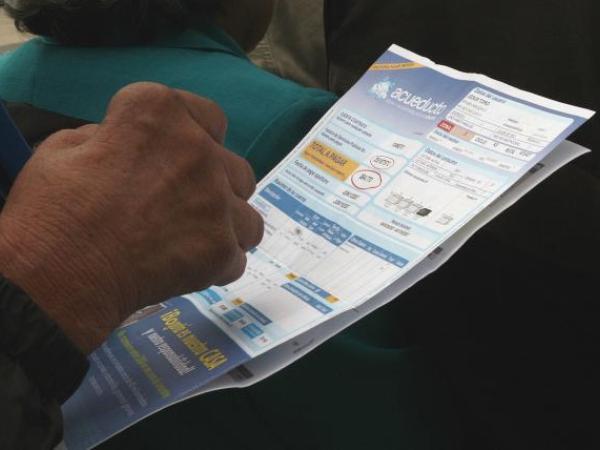The inflationary phenomenon and the devaluation of the Colombian peso is a concern of the different sectors, and that It touches the pockets of Colombians at all levels.
Andesco, the national association of Public Services and Communications Companies of Colombia, recognized this dynamic that not only affects consumers, but, in general, all the actors that provide public services.
(Read: BBVA Research estimates that the Colombian economy will grow 6.8% in 2022).
Camilo Sánchez, president of the union, He explains that this upward dynamic is due to the pandemic, since now what “was not paid in the pandemic” is being charged.
Likewise, he stressed that this increase is felt more in the pocket of Colombians due to the freezing in the price of services for more than 14 months due to covid-19.
“We are recovering part of what we did not pay in the pandemic, we are also paying for the investments that are being made. On the coast (…) The transformers, meters, networks are being installed and it is mandatory to add a percentage each time the CPI varies by 3%,” Sánchez said about the adjustment that service providers are allowed to make. aqueduct, sewage and cleaning services.
“In accordance with the provisions of article 125 of law 142 of 1994, article 2 of resolution CRA 543 of 2011 and article 58 of resolution CRA 688 of 2014, the Aqueduct and Sewerage companies are empowered to update their tariffs each time a variation greater than or equal to three percent (3%) is accumulated in the Consumer Price Index (CPI)”, highlights Andesco.
This means, in his words, that providers do not immediately increase rates due to rising costs of raw materials and supplies, the only way to update it is through this mechanism or through particular requests that is an administrative procedure that is carried out before the regulatory entity.
“People are talking every day that they are raising public services excessively and that it is most likely because companies are earning much more than before and that they are taking advantage of the opportunity”, said the union leader.
And it is that to date, Sánchez assured that the increase that was presented to the month of February (3.33%) has been applied, which would mean that the May increase (3.13%) has not yet been applied in the service fee.
“Once the CPI accumulates by more than 3%, the companies carry out a process that is not immediate (…) In May we had a rise, but that May photo is the February rate update, and likewise we It will happen in July or August with the effect of May”, said Ángela Escarria, director of Acueducto y Alcantarillado Andesco.
Among other factors, Sánchez was emphatic that the high prices of inputs have impacted the public services sector.
(Also: US inflation corners Fed for more rate hikes.)
“In the case of aqueduct and sewage, we are concerned about the increases in chemical inputs for the treatment and purification of water where our affiliated companies have shown average increases of more than 100% in less than six months, some even rose to 170%, this caused by the shortage of inputs and the rise in the dollar, generating a general concern in the sector,” said the union leader.
To conclude, the Association also points out that high inflation and scarcity of resources and supply chain disruptions have caused the CPI to riseand this has repercussions on the rise in home public services, which are reflected in the rate updates made by providers.
In this regard, Sánchez said: “The worst thing that can happen to public service providers is that the increase goes out of hand (…) Most people have a minimum wage.”
PAULA GALEANO BALAGUERA
















